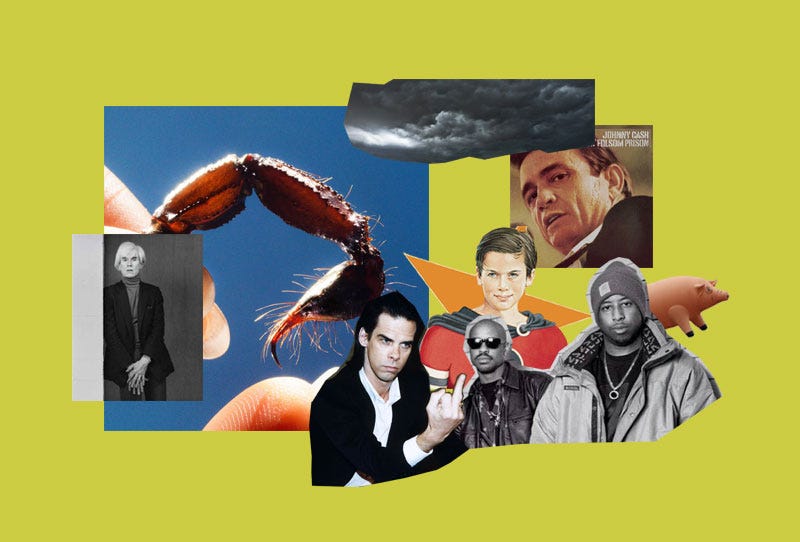The history of evil in modern music
Bristol band Squid go 100% Bastard with new album 'Cowards', by Sam Walton
In art, just as in real life, evil comes in many forms. Be it written, visual or sonic, the history of creative practice is strewn with morality plays and cautionary fairytales, exploitation body horrors and maverick-outlaw campfire songs, abstract blasts of inchoate darkness and ultra-detailed monsters that are impossible to unsee. Only the most morally rigid contrarians would deny that there are many degrees of transgression, too, ranging from the white lie or petty theft to genocide or enslavement, which is perhaps where art’s varied depictions of wickedness become most relatable: the ways that we are given to interact with portrayals of wrongdoing are as varied as the portrayals themselves, with formal abstraction from the real world allowing us to hold multiple moral standpoints simultaneously.
This is just as true in music as in any other artistic discipline: Johnny Cash’s story in ‘Folsom Prison Blues’ of shooting a man in Reno just to watch him die is, objectively, terrifying. The jaunty freight-train shuffle of the accompanying music, however, tells you that this killer is less a psychopath and more a kind of handsome swaggering charismatic outlaw, and Cash’s charmingly crooning delivery gives us licence to side with the bad guy. Forty years later, the scene in ‘Just to Get a Rep’ by Gang Starr, where a mugging becomes murder when the victim is shot for fun after being relieved of his valuables, is told with such disaffection over a tough, tumbling instrumental that it only heightens the fear. Even then, though, DJ Premier’s beats and Guru’s silky, nonchalant flow are seductive enough to valorise the song’s antagonist as some sort of folk hero.
‘Folsom Prison Blues’ and ‘Just to Get a Rep’, though, are thematic one-offs on their respective albums. Elsewhere on those LPs are love songs and hymns to good times, further mitigating the midway appearance of a murderer. Indeed, across all of pop, countless examples abound of artists dipping their toes into the River Styx for just a song or two on a record: the serial killer John Wayne Gacy Jr is profiled four songs into Sufjan Stevens’ Illinoise before the album marches on with sundry other tales of more bittersweet midwestern life. Similarly, while Phoebe Bridgers turns herself into a vengeful killer on Stranger in the Alps’ closer ‘You Missed My Heart’, just one track earlier, she was singing a loving song-portrait about her little brother. Nick Cave – about whom more later – places ‘Red Right Hand’, a song about Beelzebub himself, slap-bang in the middle of a record otherwise about the many facets of love. These five examples are just favourites that instantly spring to mind; you’ll be able to name ten more...



